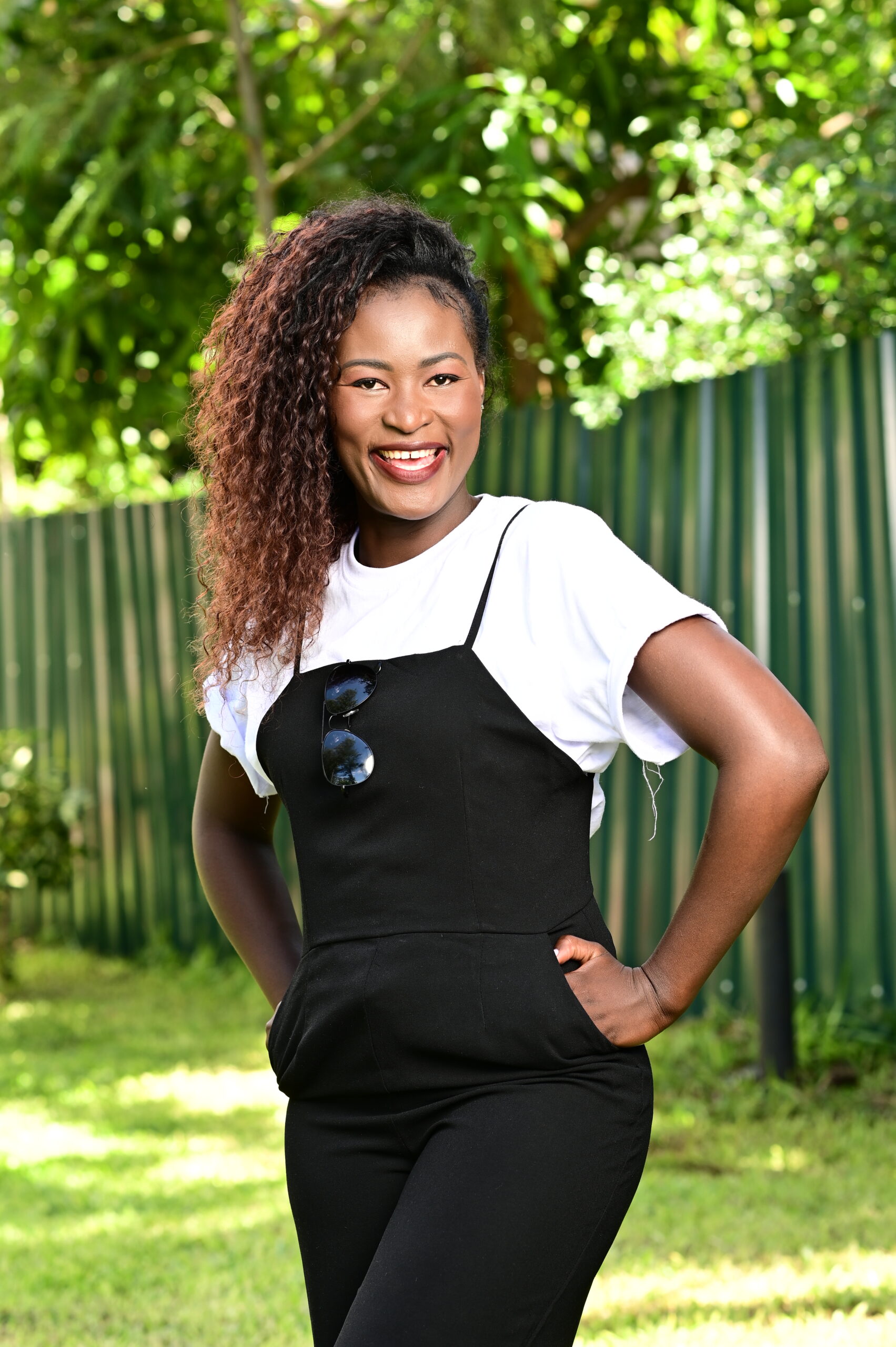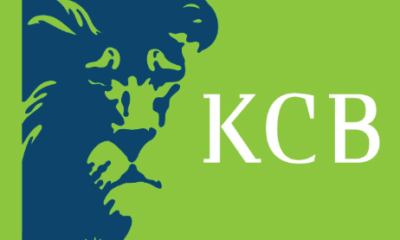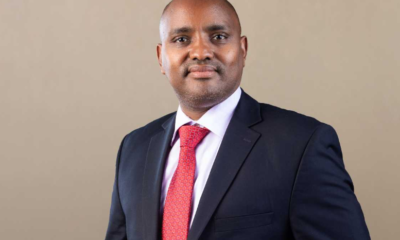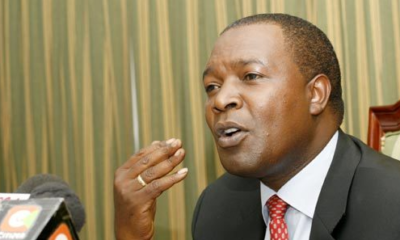Banking & Insurance
Award-winning Social Enterprise Reaps Big From Standard Chartered Bank of Kenya’s FutureMakers Programme
.


















.
Published
11 months agoon
By
admin
Naom Monari is the founder of BENA Care Ltd, an award-winning social enterprise located in Kenya that provides clinical and physiotherapy care services to patients inflicted by life-threatening illnesses from the comfort of their homes.
And verifiably since implementing lessons learned at the Futuremakers program, an initiative run by the Best Foreign bank in Kenya the company has witnessed a seismic improvement in service delivery including a substantial increase in its footfall which got a footprint here in 1911 with the first branch opening in Mombasa city.
The program builds on the success of Standard Chartered Bank’s Seeing is Believing (SiB) initiative that tackled avoidable blindness and visual impairment reaching over 176 million people and raising more than US$ 100 million.
Through the Futuremakers program, the bank’s global ambition is to raise US$ 50 million, empower 500,000 adolescent girls, support 100,000 youth towards employability, and build the entrepreneurship capability of 50,000 micro and small businesses.
It turns out meanwhile this organization which also offers a platform for buyers of homecare equipment to access cheap, used, and well-maintained medical equipment like oxygen concentrators, is on a tear.
“ Within two years we have seen the patients we have attended grow from 300 to 6000. We have also improved our efficiencies by setting up a healthcare technology app @benacare, which is a digital platform that geo maps nurses and physiotherapists drawn from across the country, who then take care of patients from the comfort of their homes. And a positive spin-off is that we have been able to attract new sponsors from outside the country including from Kenya,” says Monari who says the brand name of the company was formed from the name of her two-year-old daughter Beita, now aged eight years including her name Naom.
The five-year-old Kenyan social enterprise that Monari runs has a dedicated network of more than 9000 healthcare workers that provide affordable, preventative, therapeutic, and rehabilitative care to people suffering from life-limiting illnesses from the comfort of their own homes.
Regina Mukiri, Regional Head, Community Impact and Engagement, Kenya and the Middle East, at Standard Chartered Bank, says 31,075 young people in the Kenyan market, who include Monari had by the end of April 2023 benefited from the programme with the lender spending Ksh 189M for the financial year ending 2023.
According to the website of Standard Chartered Bank, the Future Makers initiative supports young people from low-income communities, especially girls and people with visual impairments, to learn new skills and improve their chances of getting a job or starting their own business.
This is in line with the UN’s SDG Goal 5, which calls for eliminating all forms of discrimination and violence against all women and girls, including those with disabilities. It also stresses the importance of their full and effective participation and equal opportunities in political, economic and public life.
Mukiri says the initiative cements Standard Chartered Banks’ commitment to addressing “prevalent issues that impact our communities” particularly youth unemployment, and also cements the lender’s credentials of being here for good.”
“We believe that social and economic inclusion leads to more prosperous and sustainable communities. We believe everyone should be able to contribute to and benefit from, sustainable economic growth in their community. We promote greater economic inclusion through Futuremakers by Standard Chartered, our global initiative to tackle inequality. Futuremakers supports young people from low-income households, particularly girls and people with visual impairments, through community programmes focused on education, employability, and entrepreneurship,” says Mukiri.
In what was dubbed the first phase, the initiative was initially launched in June 2019 and rests on four pillars, namely Education, Employability, and Entrepreneurship.
The education pillar sees girls being equipped with the confidence, knowledge, and skills that would lead them to become economic leaders in their families and communities.
While the employability column develops opportunities that support young people to become job-ready.
In the entrepreneurship plank, the bank provides support, mentorship opportunities, and access to resources, such as funding and banking products and services, to female entrepreneurs in the technology sector.
In the first phase of the program, the Bank equipped over 4800 students drawn from five local universities with employability and life skills. The universities included Jomo Kenyatta University of Agriculture & Technology, Kenyatta University, USIU-Africa University, Multimedia University, and Zetech University.
During the second phase which began in April 2022, Standard Chartered Bank Kenya injected Kshs 96.9 million, to run for two years targeting 790 young jobseekers with disabilities, including 150 jobseekers with visual impairment.
Kellen Kariuki, Standard Chartered Kenya’s Board Chair says the African continent has the youngest population globally, with 70% in sub-Saharan Africa falling below the age of 30. And that the burgeoning youth population presents a massive opportunity for economic growth – but only if the new generation is empowered to realize their full potential.
“ It is particularly important for these young individuals to be included in decision-making, accorded the right work opportunities, and to innovate. Sadly, the high levels of inequality in education and the job market have presented an almost perpetual challenge,” she says.
Indeed unemployment remains a big issue.
According to the African Development Bank (AfDB), approximately 10 to 12 million young Africans enter the labour market annually where only 3 million formal jobs are created by African countries. This leaves most youth unemployed or forced to settle for low-paid and low-productive jobs in the informal sector to make ends meet.
In Kenya, the situation is dire as official statistics show a third of Kenyan youth, eligible to work are jobless.
Enter Maureen Awino, another beneficiary of the program. She’s the founder of Modesh Bakers in Kisumu City. She says that she’s now able to run her company effectively.
“I’ve expanded my product line to offer different types of cookies. I also trained 80 women last year. This has enabled me to increase my sales from 150 packets of cookies to 3,000 packets weekly,” says Awino.
Standard Chartered Bank set out to fundraise and donate US$ 50 million for Futuremakers between 2019 and 2023, funds that would empower the next generation to learn, earn and grow. In response to COVID-19, the lender committed a further US$ 25 million to Futuremakers to support economic recovery for young people impacted by the pandemic.
It achieved the US$ 75 million target set for 2023, a year earlier, with additional donations made during the pandemic. In 2022, the Bank fundraised US$ 14.7 million for Futuremakers including Group donations, bringing the total fundraised from 2019 to 2022 to US$ 78.7 million.
The program is part of a global initiative to tackle inequality by promoting greater economic inclusion across global markets by empowering young people to unleash their full potential and lift their participation in the economy.
“What I loved about the programme was that we were provided with female entrepreneurs of note who took us through the ropes of how to excel in entrepreneurship and how to navigate the business cycle. We were also provided with US$ 10,000 as seed funding,” says Monari who began Benacare in 2017, as a student nurse at Gatundu Level Five Hospital, in Central Kenya after witnessing the growing number of patients that stayed in the hospital receiving non-urgent medical care, a phenomenon that inspired her to introduce the home nursing service.
“We are transforming society through our Futuremakers programs that include our GOAL project, Youth Employability programs, and Entrepreneurship programs such as Women in Tech. At Standard Chartered, we are committed to supporting the youth and women by creating opportunities to support them when they embark on entrepreneurship, Joyce Kibe, Head of Corporate Affairs, Brand and Marketing Kenya and East Africa, says.


Biggest Africa Lender Plans Kenyan Bank Acquisition by 2025


Cooperative Bank of Kenya Headed for Strong Growth, Analysts Say


Equity Bank Group named Strongest Banking Brand in Kenya


KCB Group Posts 40 Billion Shillings, Marking a 19.5 % Rise in 2022


KCB Group Talks With Potential Targets in Plan to Enter Ethiopia


Prof. Njuguna Ndungu: Effects of Digitization of Payments within the African Continent
